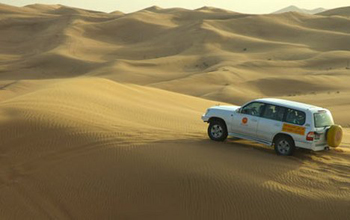Dubai, Dec 14: A man allegedly raped his colleague in his car in a remote location in Dubai after he lured her saying he would teach her how to drive, the Court of First Instance heard on Tuesday.
 The 36-year-old Pakistani employee is accused of using force on the woman, taking advantage that they were alone, far away from any buildings.
The 36-year-old Pakistani employee is accused of using force on the woman, taking advantage that they were alone, far away from any buildings.
The complainant, a 32-year-old Ukrainian real estate agent, said the accused offered to give her some driving lessons. "At 3 pm on July 8, he took me to Al Karama after I told him I wanted to buy a mobile recharger."
On the way back he diverted to a street in Dubai Land. "He asked me to sit in his lap as he wanted to train me with my driving. But I refused and argued with him, asking him to drive me back home."
However, his car got stuck in the sand when he went off road.
"He took off his pants and was trying to get the sand off the tires in vain. He would not call someone for help."
It became dark and they were still there. "He sat next to me and began saying he loved me and kissing me." He then raped her, she claimed, adding that he did not care as she told him she would report him to the police. She said she felt very scared he might hurt her as he looked angry.
He then went out of the car and called someone who came and got the car out.
She reported the incident at Al Barsha police around midnight with her friend.
"The woman said she knew the accused who was her workmate since 4 months. He would give her free rides sometimes," a police lieutenant said.
The officer said the accused admitted to him he had sex with the complainant against her will.
The defendant's DNA traces were found on the woman's body and on his car's back seat.
The court adjourned the trial to January 3.





Comments
Non Muslim ladies are like slaves to them ...Islamic countries will never punish the culprit .. First of all rape endorse madakke 4 mullahs illa ...hahaha ...third rated rules
Add new comment